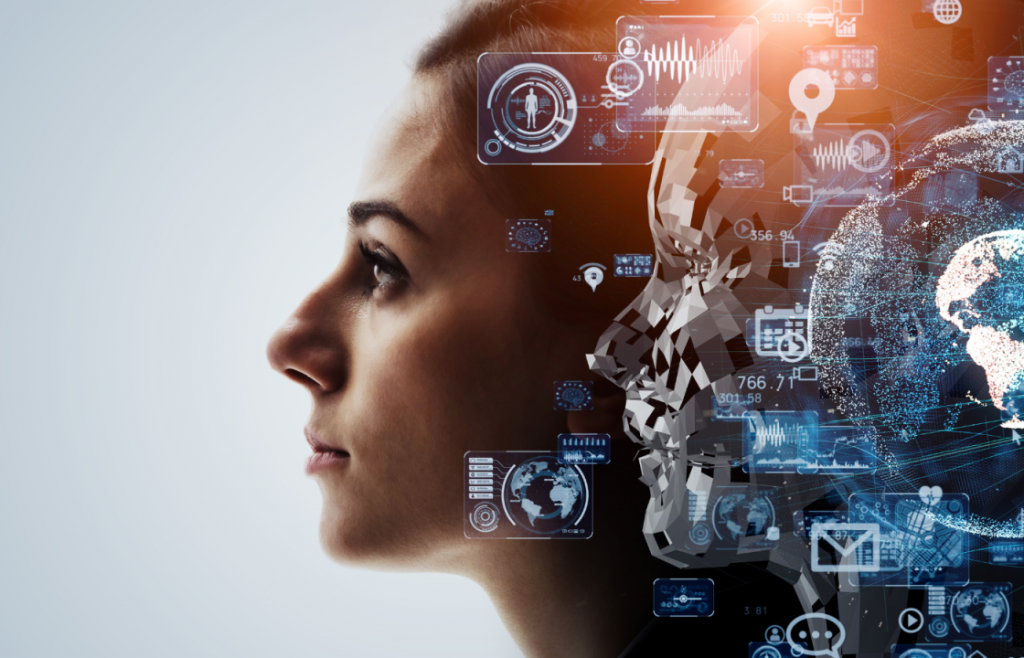Revolutionizing the IT Landscape: The Disruptive Power of Generative AI
One of the most fascinating emerging areas of artificial intelligence (AI), which is expanding quickly, is generative AI. Modern technology is fundamentally altering our perception of the nature of work in the future, reshaping the labor force and upending entire industries. This article explores the fascinating field of generative artificial intelligence and looks at how it’s changing employment roles, industries, and our perception of what it means to work.
Generative AI unleashes creativity beyond imagination
ChatGPT from Open AI and other models that can produce text, visuals, audio, and even movies that resemble human speech are examples of “generative AI” models. Generative AI is distinguished by its ability to generate new content on its own. By learning from big datasets, these models may generate text, pictures, and music, among other things. This innovative technology not only benefits humans but also opens up new opportunities for machines to express their creativity and intelligence.In Action: Generative AI
Across industries, generative AI is having an impact:
- Content Creation and Marketing: The use of generative AI in content marketing is becoming increasingly valuable. It can save time and resources on content development by creating personalized marketing campaigns, interesting blog entries, and eye-catching graphics.
- Software Development: By creating, documenting, and even reviewing code, Generative AI simplifies software development in engineering and information technology. This automation lowers errors and speeds up project schedules.
- Healthcare and Pharmaceuticals: Generative AI helps in drug discovery by analyzing vast datasets, understanding diseases, and proposing novel chemical structures for potential therapeutics. This has the potential to significantly expedite lifesaving breakthroughs.
- Legal and Compliance: AI models like ChatGPT assist the risk and legal sectors by offering complex replies, analyzing legal documents, and producing reports. This reduces human error and improves efficiency.
- Customer Service and Interaction: Generative AI is boosting customer communications. AI-powered chatbots and virtual assistants improve user experiences by responding to customer inquiries quickly and accurately. AI High Performers are Leading the Charge.
Notably, a few businesses have pioneered the use of generative AI and are reaping major benefits. These AI-strong performers get superior results by automating data-related activities, connecting AI strategies to business goals, and employing standardized toolkits for scalability.
The Future Workforce
Generative AI is transforming the workforce as it spreads:
- Upskilling and Retraining: Businesses are investing in their personnel to fully embrace AI. They provide training in AI-related competences such as using AI models and integrating AI into operational operations.
- New Job Roles: Advancements in AI have created opportunities in machine learning, data engineering, and data science. Specialized skills are required for these professions in order to design, manage, and upgrade AI systems.
- Talent Diversification: Organizations strive to diversify their AI teams, as diverse teams often outperform each other. Initiatives aimed at increasing gender and ethnic diversity are gaining popularity.
Ethical Considerations: As AI advances rapidly, it’s crucial to prioritize ethics and acceptable behaviors. Organizations are facing challenges related to intellectual property rights, bias, and data privacy.
The Future of Work: Juggling Opportunities and Difficulties.
Although generative artificial intelligence has great promise, it also has several limitations.
- Accuracy and Bias: AI systems, especially generative models, are faulty. They may create biased or incorrect content, perhaps leading to misinformation issues.
- Ethical questions: It is vital to address ethical questions about AI’s role in creative processes, as well as ownership issues for AI-generated work.
- Integration and Adaptation: Businesses must incorporate AI technologies into their business culture and values; this is a technical process that requires expertise.
- Intellectual Property: It can be difficult to verify who owns the work created by AI, raising intellectual property concerns.
Generative AI is more than just a technological triumph; it is a revolutionary force that is disrupting business, reinventing employment, and redefining the future of work. AI high performers are setting the standard for success by applying cutting-edge AI tactics, while corporations are actively attempting to diversify and upskill their workforce. We must face the challenges of the AI revolution with an ethical, accurate, and adaptable perspective. The field of generative artificial intelligence is still in its early stages, but it has the potential to significantly impact both industry and society.
Source

